Total 23 Current1/3
-
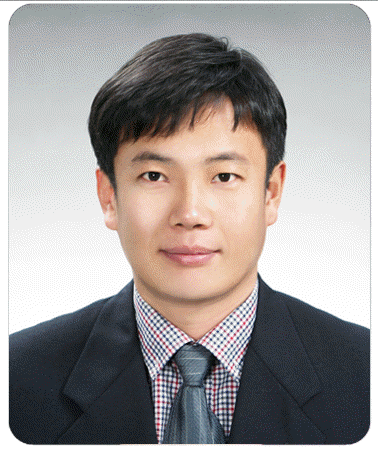
Ko Suk-whan
Academic advisor for a student researcher Renewable energy system Laboratory
- +82-42-860-3282
- korea19@kier.re.kr
Course
Academic Cooperation CourseResearch Field
태양광시스템 SI, AI 기반 태양광시스템 고장진단 및 수명예지, 태양광발전소 성능검사, 리파워링 및 리싸이클링Research Project- 안전성 강화를 위한 DNA 기반 신재생에너지 예지진단 관리기술 개발 - RE100 이행을 위한 표준화 모델(기술) 개발 및 이행수단 고도화 - 수로적합 투광형 양면모듈을 적용한 아치형 루프탑 태양광모듈 시스템 개발 - AI 기술을 적용한 태양광발전시스템의 O&M 솔루션 개발 - 태양광설치단가와 LCOE 경쟁력 강화를 위한 700W+ 고출력 모듈 대응 지능형 인버터 개발 및 장기실증 - 태양광 고장 및 예지진단기술개발Paper Publication- Analysis of electrical and thermal characteristics of PV array under mismatching conditions caused by partial shading and short circuit failure of bypass diodes, Energy, 2021 - Power Generation Prediction of Building-Integrated Photovoltaic System with Colored Modules Using Machine Learning, energies, 2022 - Current Flow Analysis of PV Arrays under Voltage Mismatch Conditions and an Inverter Failure, energies, 2019 -
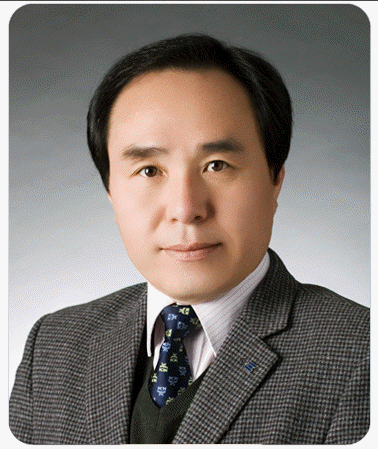
Dong Kook Kim
Academic advisor for a student researcher KIER SCHOOL
- +82-42-860-3152
- dokkim@kier.re.kr
Course
Post-doctoral ResearcherResearch Field
Electrochemical Water Energy SystemResearch Project- Development of zinc-polyiodide flow battery with high energy density - Development of MVR evaporation system for waste water treatment from desulfurization of power plant. - High efficiency floe-electrode development for investigation of new process based on electrochemistry - Performance analysis of Salinity Gradient Power(SGP) generation based on FCDI Technology. - Development of seeding technology for the convergence system of on/off-shore renewable energyPaper Publication- Performance of single- and double-effect operable mechanical vapor recompression desalination system adaptable to variable wind energy, Int. J. or Energy Research, 2019 -Flow-electrode capacitive deionization with highly enhanced salt removal performance utilizing high-aspect ratio functionalized carbon nanotubes, Water Research, 2019 - Study on the electrochemical characteristics of porous ceramic spacers in a capacitive deionization cell using slurry electrodes, J. of Electroanalytical Chemistry, 2019 - Membrane-spacer assembly for flow-electrode capacitive deionization, Applied Surface Science, 2018 - Heat and mass transfer of binary distillation in a vertical wetted-wall column, Chemical Engineering Research & Design, 2017 - Analysis of the desalting performance of flow--Electrode capacitive deionization under short-circuited closed cycle operation, Desalination, 2017 - Electrochemical analysis of slurry electrodes for flow-electrode capacitive deionization, J. of Electroanalytical Chemistry, 2017 - Plate-shaped graphite for improved performance of flow-electrode capacitive deionization, J. of the Electrochemical Society, 2017 - Electrochemical characterization of electrolyte-filled porous carbon materials for electrosorption process, J. of Electroanalytical Chemistry, 2017 - A novel three-dimensional desalination system utilizing honeycomb-shaped lattice structures for flow-electrode capacitive deionization, Energy & Environmental Science, 2017 - A study on the development of MVR desalination plant and its performance analysis, 에너지공학, 2016 - Stack design and operation for scaling up the capacity of flow-electrode capacitive deionization technology, ACS Sustainable Chemistry & Engineering, 2016 - Surface-modified spherical activated carbon for high carbon loading and its desalting performance in flow-electrode capacitive deionization, RSC Advances, 2016 - Flow-electrode capacitive deionization using an aqueous electrolyte with a high salt concentration, Environmental Science & Technology, 2016 - Desalination via a new membrane capacitive deionization process utilizing flow-electrodes, Energy & Environmental Science, 2013 -
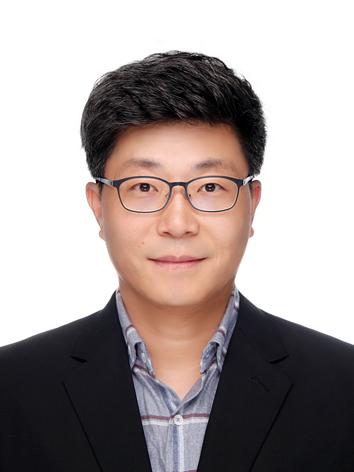
Kim, Sung-il
UST adjunct faculty EMS Laboratory
- +82-42-860-3168
- praygod@kier.re.kr
Course
Post-doctoral Researcher,Academic Cooperation CourseResearch Field
Energy efficiency in the industrial sector, energy-intensive systemResearch Project- Development and demonstration of smart design platform technology for industrial dryers - Development of a hybrid dryer for high-value fine chemical production - Development of high-performance microwave furnace system for dielectrics as susceptors - Development of regeneration system using dielectric ceramic filters for fine dust reductionPaper Publication- Analysis of the electroviscous effects on pressure-driven flow in nanochannels using effective ionic concentrations - Experimental study on heat transfer performance of a two-phase single thermosyphon using HFE-7100 - Drying characteristics of fine powders in an inert medium circulating fluidized bed with binary inert media - Numerical analysis of bubble motion under a pressure pulsing condition - Numerical analysis of convective drying of a moist object with combined internal and external heat and masstransfer - Numerical analysis of convective drying of a moving moist object -

Kim Jong-hoon
Academic advisor of cooperative university -
- +82-42-821-7606
- whdgns0422@cnu.ac.kr
Course
Post-doctoral Researcher -
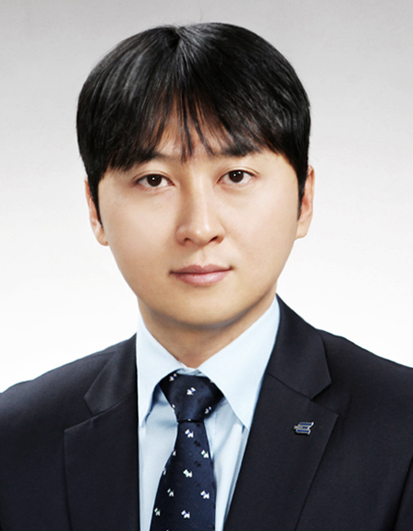
Jonghun Kim
UST full-time faculty Energy ICT Research Department
- +82-42-860-3467
- jonghun@kier.re.kr
Course
Post-doctoral Researcher,UST Student,Academic Cooperation CourseResearch Field
Autonomous Building, Building Energy Efficiency & Environmental TechnologyResearch Project- Development of neuromorphic technology for autonomous EMS - A project to link the existing KIER building energy management platform for energy management in the 3rd Research Building - Novel building cooling system using natural cold energy for reduction in power consumption - Development of electrification technology for building heat source system to achieve carbon neutrality - Development of low-carbon and highly energy efficient construction technologies - Power-free electrostatic collecting device development for purifying indoor air pollution - Development of energy performance diagnostic platform for existing buildings - Convergence and empirical study of zero energy building element technology package - ESS-based, small scale co-residential clean energy, smart home empirical studyPaper Publication- In Situ Airtightness Measurement Using Compressed Air Flow Characteristics, 2023.10. - Proposed existing building diagnosis framework for energy efficiency improvement, 2023.09. - Appropriate level of development of in-situ building information modeling for existing building energy modeling implementation, 2023.06. - Energy-efficient PM adhesion method using functional electroactive nanofibers, 2022.11. - Data-driven approach to predicting the energy performance of residential buildings using minimal input data, 2022.04. - Experimental analysis of low-cost energy retrofit strategies for residential buildings to overcome energy poverty, 2022.02. - In Situ measurement of the heat loss coefficient of thermal bridges in a building envelop, 2022.02. - In Situ Evaluation of the U-Value of aWindow Using the Infrared Method, 2021.03. - Deep Neural Network Approach for Prediction of Heating Energy Consumption in Old Houses, 2020.12. - Statistical Methodology for the Definition of Standard Model for Energy Analysis of Residential Buildings in Korea, 2020.11. - Scenario Analysis for GHG Emission Reduction Potential of the Building Sector for New City in South Korea, 2020.10 - Power-free electrostatic collecting film development for purifying indoor air pollution, 2019.08. - The Feasibility of Improving the Accuracy of In Situ Measurements in the Air-Surface Temperature Ratio Method, 2018.07. - Thermal performance evaluation of low-income buildings based on indoor temperature performance, 2018.04. - Reliability Field Test of the Air-Surface Temperature Ratio Method for In Situ Measurement of U-Values, 2018.03. - Energy benefits from semi-transparent BIPV window and daylight-dimming systems for IECC code-compliance residential buildings in hot and humid climates, 2017.06 - A middleware platform for the validation and utilization ofshort-term weather forecast data for office buildings, 2017.05. -
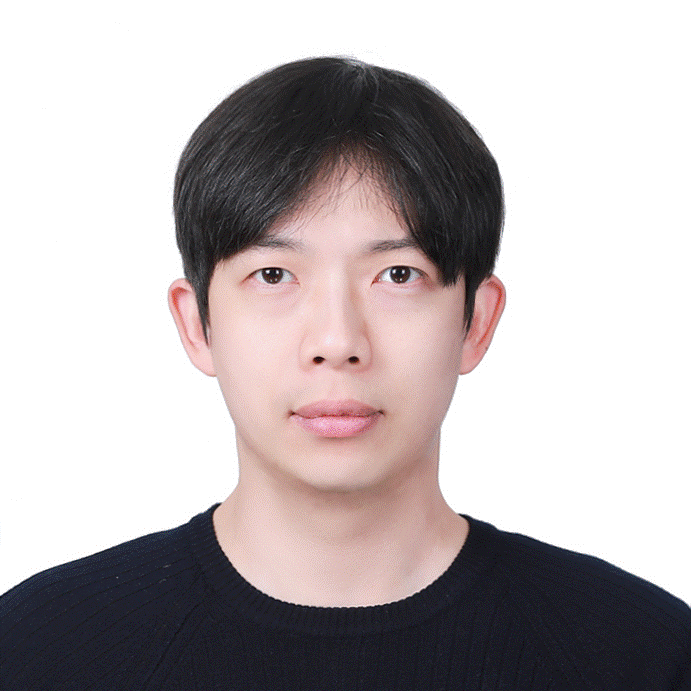
Jinsoo Kim
Academic advisor for a student researcher Ulsan Advanced Energy Technology R&D Center
- 052-702-2534
- jkim@kier.re.kr
Course
Post-doctoral Researcher,Academic Cooperation Course,Training StudentResearch Field
- Fundamental materials design and practical cell engineering for high-energy storage devices - Large-scale process development of dry thick electrodes and electrolytes for lithiu-ion and solid-state batteriesResearch Field
- Fundamental materials design and practical cell engineering for high-energy storage devices - Large-scale process development of dry thick electrodes and electrolytes for lithiu-ion and solid-state batteriescloseResearch Project- Process development of dry thick electrode for carbon-neutralized high-energy LIB (NST, Chief PI, 2021~2026, \11.4B) - Next-generation battery prototyping center for SSB, LMB, and Li-S chemistries (KIAT, Chief PI, 2022~2025, \34.1B) - Structural design and fabrication process development for solid-state batteriesPaper Publication- “Coupling structural evolution and oxygen-redox electrochemistry in layered transition metal oxides” Nature Materials, 2022, 758-766 - “Universal chemomechanical design rules for solid-ion conductors to prevent dendrite formation in lithium metal batteries” Nature Materials, 2020, 19, 758-766 - “Dissolution and ionization of sodium superoxide in sodium-oxygen batteries” Nature Communications, 2016, 7, 10760, - “Rational design of redox mediators for advanced Li?O2 batteries” Nature Energy, 2016, 1, 16066 - “Sodium?oxygen batteries with alkyl-carbonate and ether based electrolytes” Physical Chemistry Chemical Physics, 2013, 15 (10), 3623-3629 -
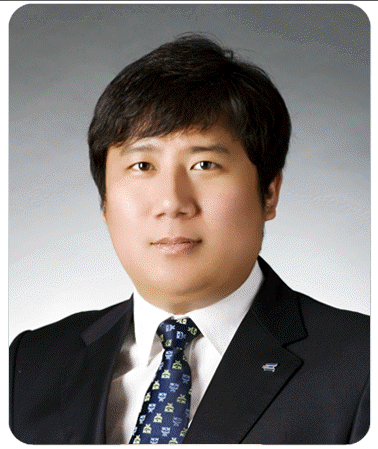
Hanki Kim
UST full-time faculty Marine Energy Convergence and Integration Lab
- 064-800-2256
- hankikim@kier.re.kr
Course
Post-doctoral Researcher,UST Student,Academic Cooperation CourseResearch Field
역전기투석, 해수이용 에너지저장 (블루배터리), 해수이차전지, 물-에너지 융합기술Research Project(1) 대용량 재생에너지 저장을 위한 700 Wh/L급 초고성능 해수이차전지 원천기술 개발연구 (기본사업) (2) 확장형 전기화학적 해수온도차발전 원천기술개발 및 적용성 분석을 위한 선행연구 (3) 철강산업 탄소중립전환 촉진을 위한 물-에너지-폐자원 넥서스 융합클러스터 (4) 글로벌 탄소중립 선도도시 도약을 위한 해수이용 친환경 에너지저장 핵심기술개발 (5) 한-미 물-에너지 미래기술 워크샵 (기반구축사업) (6) 해수이용 CO2-전력 동시저장 융합시스템 구현을 위한 미래원천기술개발 (7) 생체모방기반 이산화탄소 농도차발전 및 활용 핵심원천기술 개발Paper Publication(1) Hanki Kim (First Author), Electrochemical Analysis of High-Performance Flow-Electrode Capacitive Mixing (F-CapMix) under Different Operating Conditions, ACS sustainable chemistry & Engineering. (2021) (2) Hanki Kim (First Author), Optimization of the number of cell pairs to design efficient reverse electrodialysis stack, Desalination, (2021) (3) Hanki Kim (First Author), Nernst-Planck analysis of reverse-electrodialysis with pore-filling membranes and its upscaling potential, Water Research (2020) -
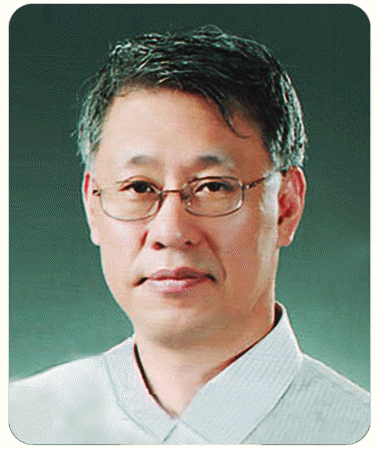
Sang Keun Dong
UST full-time faculty Advanced Combustion Power Plant Laboratory
- 010-9424-3041
- skdong@kier.re.kr
Course
UST StudentResearch Field
AI based energy system, SOFC/SOEC energy system, Plasma application technologyResearch ProjectSOEC energy system, Amonia SOFC energy system, Low carbon Hydrogen production technology, IOT/AI based energy systemPaper Publication10-Cell direct ammonia solid oxide fuel cell stack design development with improved efficiency and resilience to thermal shock Efficient 5 kW-class solid oxide fuel cell (SOFC) hotbox design with off gas integration for power generation Modeling and comprehensive analysis of hydrogen production in a newly designed steam methane reformer with membrane system Experimental and numerical study on the hexadecanoic acid upgrading kinetics under supercritical ethanol without the use of hydrogen Use of response surface methodology to optimize NOx emissions and efficiency of W-type regenerative radiant tube burner under plasma assisted combustion Numerical investigations to determine the optimal operating conditions for 1 kW-class flat-tubular solid oxide fuel cell stack Design and analysis of compact hotbox for solid oxide fuel cell based 1 kW class power generation system -

Park Chul Ho
UST full-time faculty Jeju Global Research Center
- 064-800-2257
- chpark@kier.re.kr
Course
Post-doctoral Researcher,UST Student,Academic Cooperation Course,Training StudentResearch Field
- 분리막 소재 연구 (중공사막 제조, 다공성 중공사막, 초나노박막, 기체 분리막, 이온교환막, 나노 코팅 기술 등) - 시스템 : 저에너지 분리정제 기술, Super antifouling process, 수처리 기술, 기체분리정제 기술, 중수기술Research Field
- 분리막 소재 연구 (중공사막 제조, 다공성 중공사막, 초나노박막, 기체 분리막, 이온교환막, 나노 코팅 기술 등) - 시스템 : 저에너지 분리정제 기술, Super antifouling process, 수처리 기술, 기체분리정제 기술, 중수기술closeResearch Project- 가스상 에너지원 고순도화 공정용 나노분리막 소재 및 공정개발 (2024.07~2018.12) - Sub-mirometer 선택층 in-line 나노코팅 공정을 통한 수소 고순도화 중공사막 개발 (2023.12~2026.11)Paper Publication1. Precision-aiming tuning of membranes prepared by NIPS and its performance enhancement, Journal of Cleaner Production 365, 132858 2. Electrochemical energy-generating desalination system using a pressure-driven ion-selective nanomembrane, Nano Energy 94, 106939 3. High-performance nanofiltration of outer-selective thin-film composite hollow-fiber membranes via continuous interfacial polymerization, Journal of Industrial and Engineering Chemistry 103, 373-380 4. Nanofluidic energy harvesting through a biological 1D protein-embedded nanofilm membrane by interfacial polymerization, Nano Energy 74, 104906 -
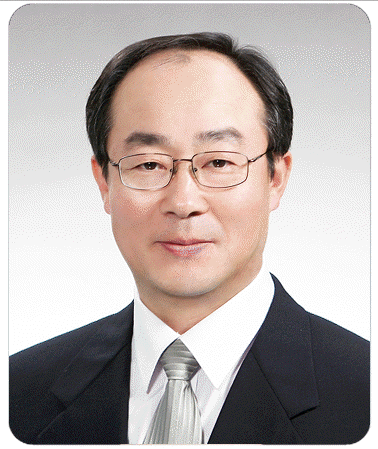
Bae Dal-hee
Academic advisor for a student researcher Greenhouse Gas Research Laboratory
- +82-42-860-3674
- dalbae@kier.re.kr
Course
Training StudentResearch Field
Fluidized bed combustion and waste conversion processResearch Project- Development of high-efficiency pure oxygen circulating fluidized bed boiler power generation technology - Development of multifunctional additives for bed meterial and reducing fine dust in solid fuel use facilities - A Study on Overcoming Combustion Difficulty by Recycling of Circulating Materials and Recirculation in Solid Refuse Fuel FacilityPaper Publication- [2019] Solid Circulation Characteristics of Two Lower Loop Seals with Two Kinds of Particles in a Circulating Fluidized Bed System - [2019] Combustion characteristics of the solid refused fuel in a circulating fluidized bed combustion system'-[2018]High Temperature Corrosion in a Waste-Fired Combustion Boiler
